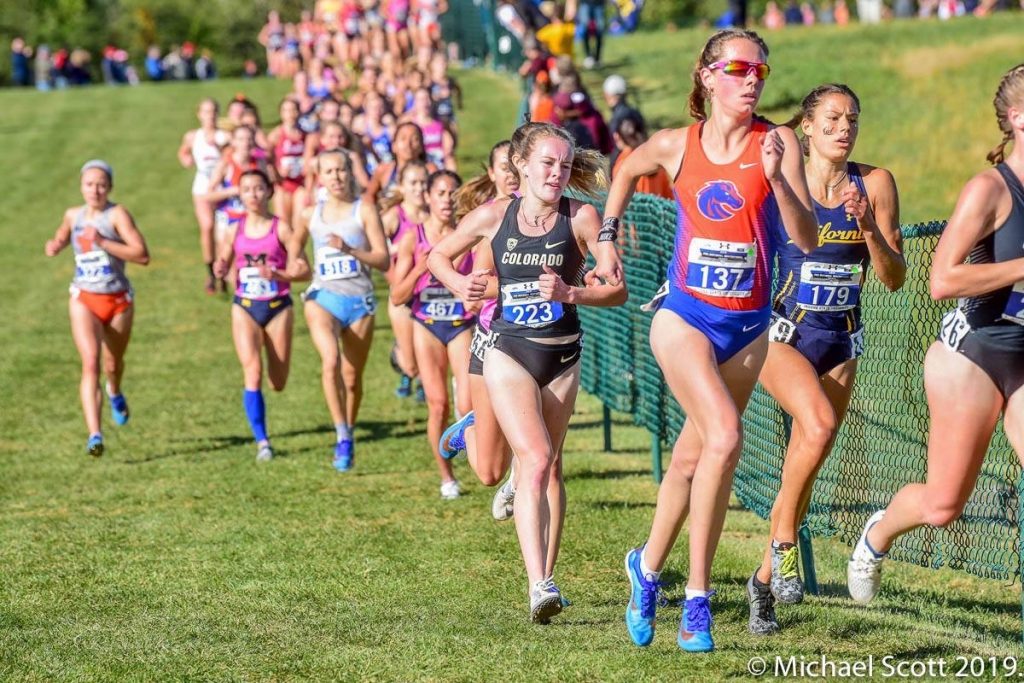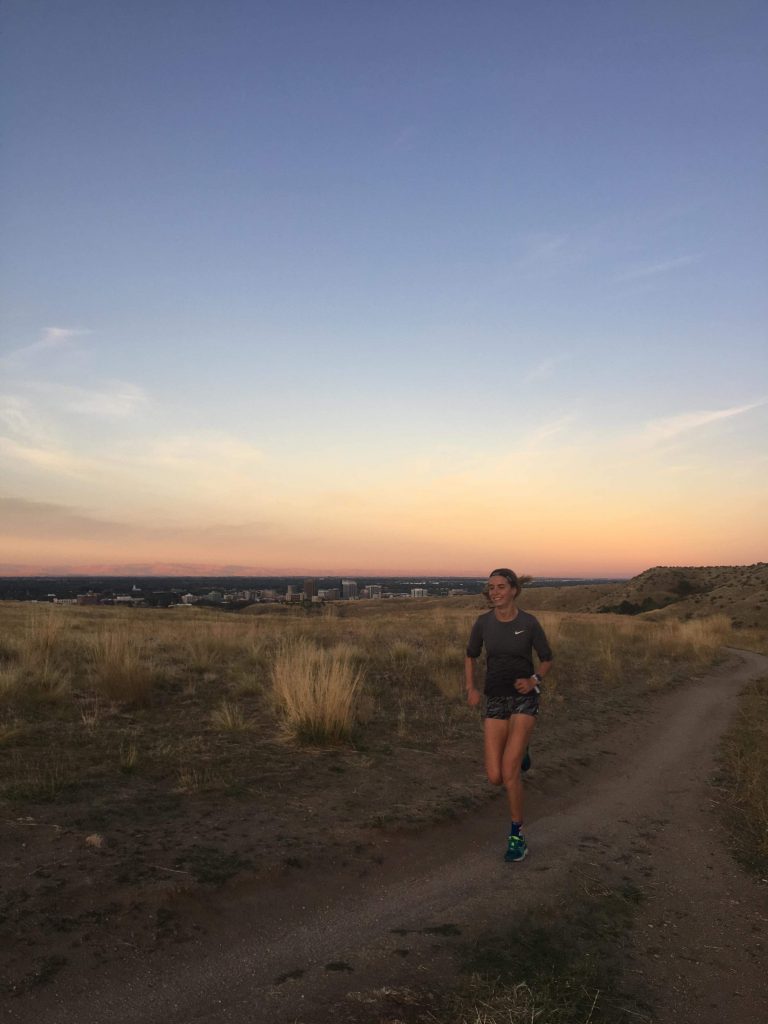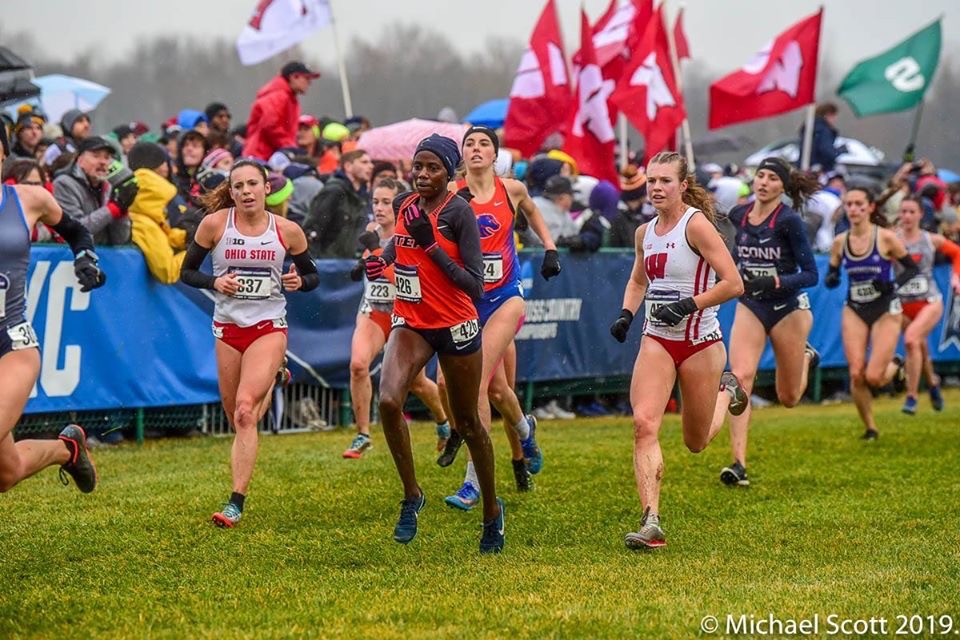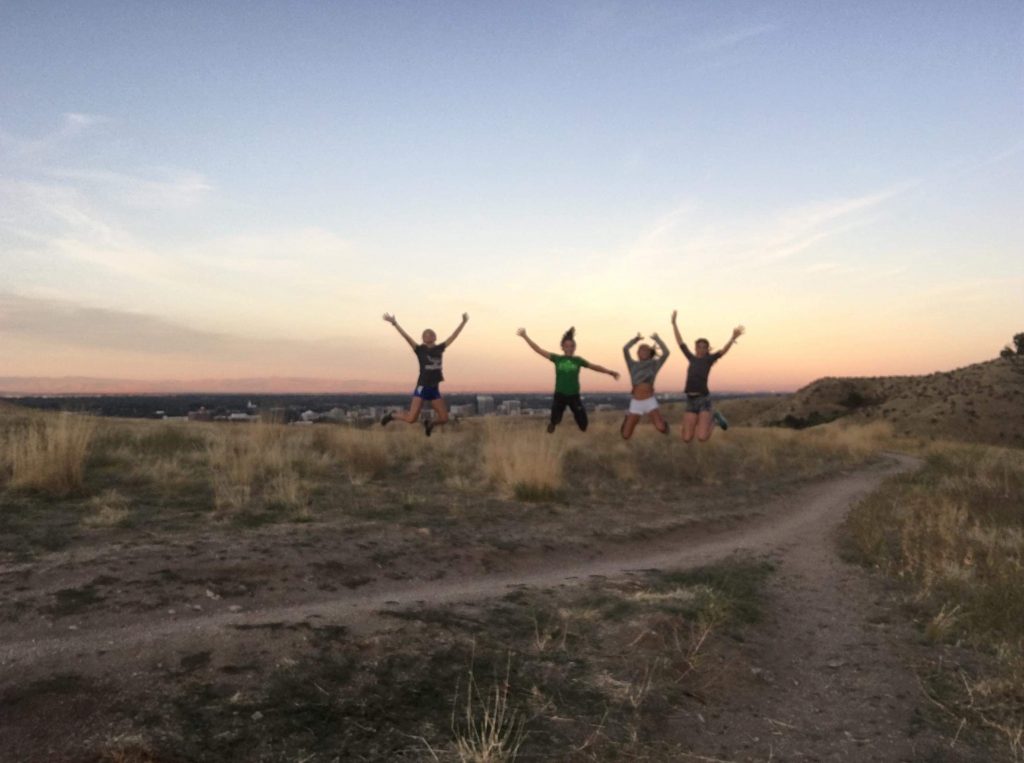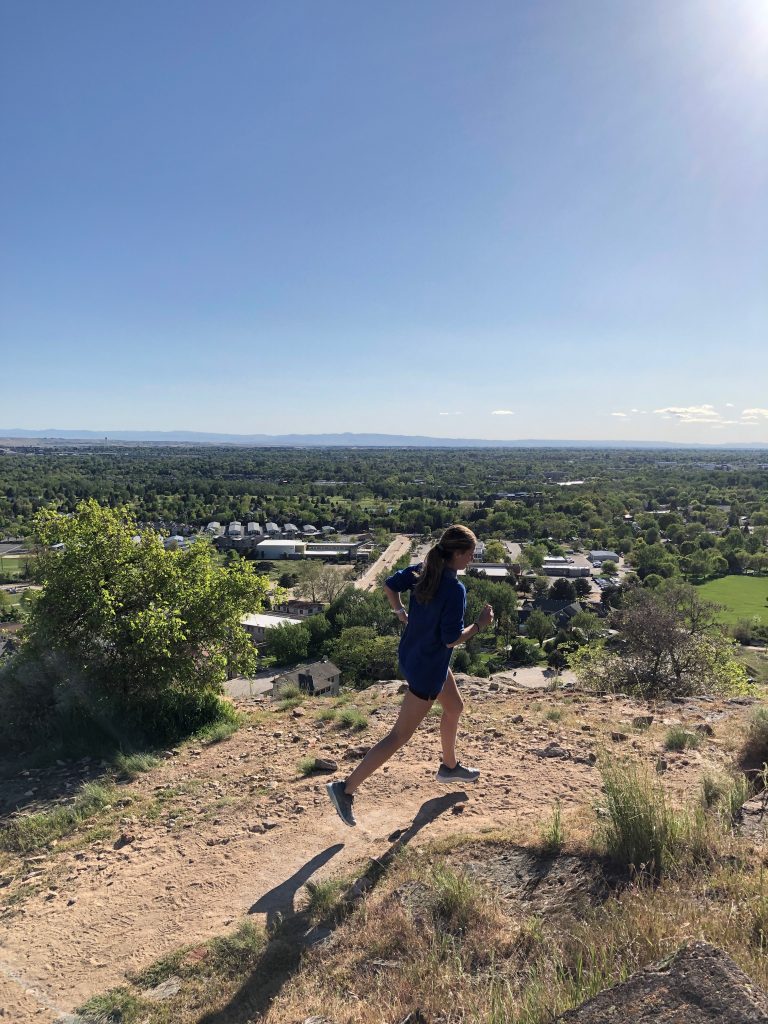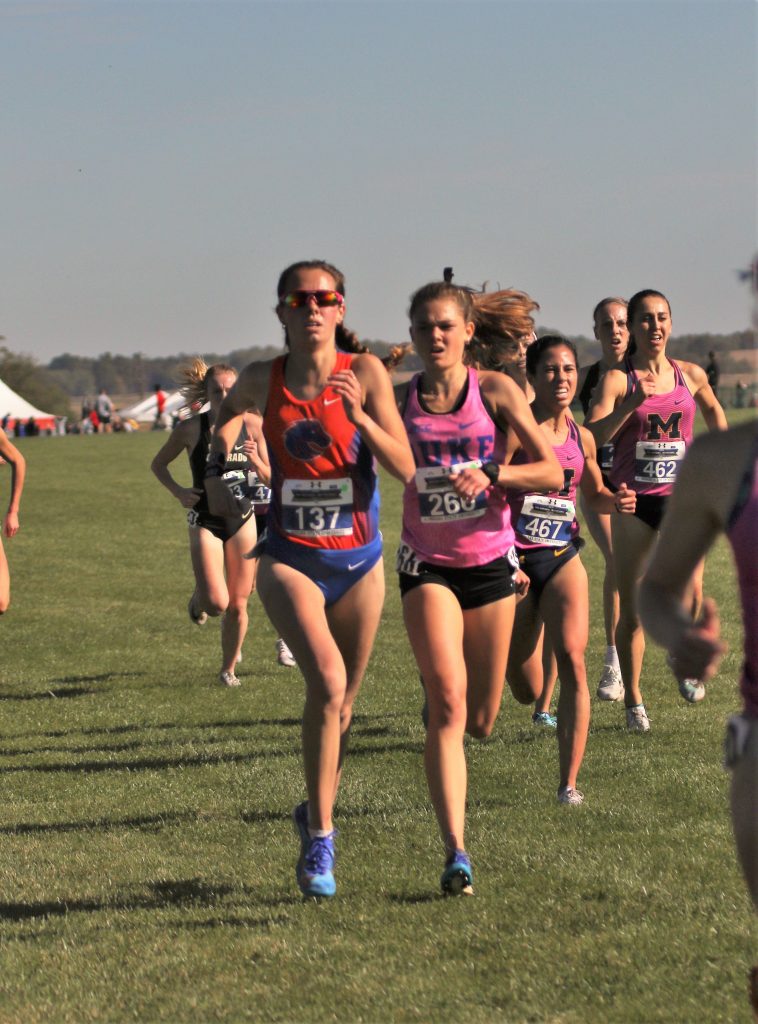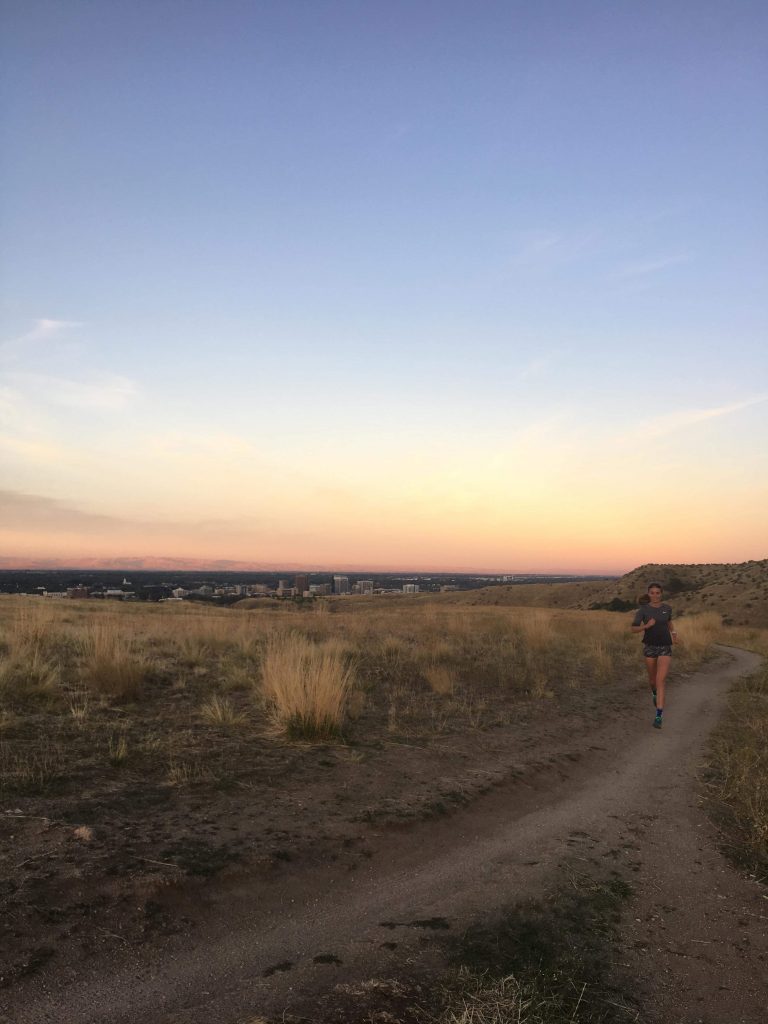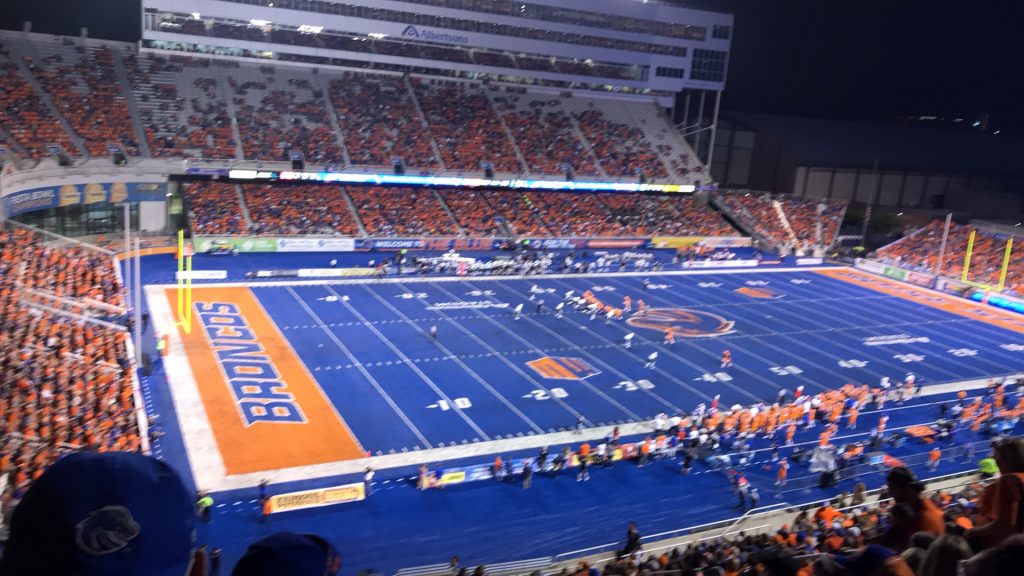Being A Student-Athlete in College
When you think college athlete or student-athlete, the common things that come to mind are becoming part of a college team, NCAA (national collegiate athletic association), high-quality fields of talented individuals, traveling to meets, fast cross country courses, lots of team gear, completing a degree, and moving out of home – potentially even overseas. All these things are a part of the student-athlete experience. I personally chose to come to the US and study at Boise State as a graduate/masters level collegiate athlete. I was offered a sport halfway through my undergraduate degree in Australia, after winning the 2017 U20 National Cross Country Championships. It was fair to say that this race changed my life forever. A bold statement, but sitting here at my computer now and reflecting on my first year living in Idaho, this is an extremely fair conclusion.
It was difficult to make the decision to move my life overseas aged 21 when I felt comfortable in Australia with my coaching set-up and university team there. However, I felt like I needed to take on a new adventure. I wasn’t quite ready to go into the working world full-time (I tried this for half a year before I left), Sydney is expensive to move out of home in, and a collegiate athletic scholarship would provide me with the luxury of being ‘paid’ in a sense to do what I love, be a part of a team and make new friends, move out of home, live in a foreign country and see new places, and experience the true long-term independence I had been craving.
What does it mean to be a student-athlete?
If you’re a student-athlete, you are expected to balance your academics, training, and college life – and do it well. I have improved my time management skills immensely, learning to prioritize and time-block (scheduling – I personally love to use Google Calendar) so I can travel to meets stress-free and perform at my best, and have the social life that I desire as a graduate student in a new country. This was a must for me. I am the best athlete I can be when I’m happy, which means a balance of social life, study (I study a master’s of music performance in vocal studies), and training.
I had some idea of what to expect when I moved to America to study at Boise State as I had been in continual contact with the coaches, asking them numerous questions for over 9 months. I wrote a list every time I thought of a question and would cross them off as I asked them. The coaches were always willing to answer, and answer promptly.
What are the benefits of being a college athlete?
The support system is one of the biggest benefits. I’ll use my school, Boise State, as an example. The program here has been designed to optimize training and student-athlete health, so you can perform at your best and balance your other life commitments. We have multiple training staff that attends our training sessions, a team sports-performance psychologist, sports nutritionist, and some excellent athletic trainers and athletic training facility. We are allowed to visit the athletic training room 6 times a week if we wish and work with the athletic trainers to address niggles and injury concerns, and recover from training sessions/workouts. Often we go straight after practice, as the center is right near the athletics track. The room is decked out with foam rollers, compression boots, thera-guns, cupping, and dry needling kits, an ice bath, compression ice gear, heat packs, and a small rehab weights and equipment area.
The Training
The training is slightly different from home, which is to be expected with any new coach and program. We keep with the standard recovery run, 2x workouts a week for the most part (including fartleks, tempo runs, track sessions, grass sessions), a mid-week longer run, a sprint session, and a weekend-long run to finish off the week. The main differences for me were the addition of pre-cross country season altitude training up in the hills and ski resort in the warmer months, the team-based focus including groups for workouts, and a very season centered workout approach (Outdoor, indoor track, and cross country).
Team Focus
There is no denying that team camaraderie and a team-based focus is crucial to student-athlete life. One cross-country season at Boise State was enough to show me the immense importance of working as a team in what is often regarded as an individual sport, and as a result, I have friends and training partners for life, all around the world. In cross country, it is so important that the team finish as high as possible, so we need the whole team to perform at their very best, to place well in meets. To do this, we must work together in race scenarios to optimize the result at the end. It is also important to mention that I love having people to run with all the time. I can choose whether I go solo on some days, but for the most part, it is nice to know that I always have friends up for a jog.
Finances
Yes, we do get a stipend. The university pays us a certain amount each month to cover living expenses such as groceries, rent, phone bills, potential car payments, and entertainment money. This will differ from university to university.
Travel
Traveling and team camps are also another perk of being a collegiate athlete. In this past year, I’ve had the opportunity to visit states such as Utah, Washington, Oregon, and Indiana for competition, and explore heaps of Idaho. We also have a team camp once a year, which is a great way to meet new teammates, and have a weekend away in a cool part of Idaho.
Student-Health Support and Athletic Trainers
I mentioned this earlier in the post, however, it is important to mention it as a massive benefit of being a student-athlete. We have amazing athletic trainers who help us manage niggles and injury, to get us running and healthy again. I also have worked with the sports psychologist and sports nutritionist to optimize my mental toughness and mental skills, and diet to match my energy needs.
Student-athletes and academics: how do you balance it?
A good college program will have an Athletic Department Academic Advising facility and resources. At Boise State, we have PRECO, a study area with printers, computers, and group study areas right where the athletic facilities are such as locker rooms, the weight room, and staff offices. For undergraduate students, they are expected to log a certain number of hours studying in the PRECO center – as a graduate student, this is not required, however, I took advantage of this resource to remove myself from the distractions of home. Our team academic advisor is brilliant – she handles inquiries about classes, difficulties with the competition, and class commitment and helped me keep on track with my academics over the past year.
The school expects you to get a medium range GPA each semester, to meet the academic eligibility standards so you can compete in collegiate competition. Most student-athletes in the past 2 years have recorded an average of GPA 3.0 or higher. This is definitely achievable. It is truly about time management and making sure you work productively. Some tips I utilize include:
- Work to your chronotype (early bird or a night owl, maybe you’re a bit of both!) I am an early bird – so I like to start my day with an hour of work, and then train. Or train, then work.
- We are more creative when we are tired, as our brains are more easily distracted. That’s why you come up with cool ideas right before you fall asleep. Keep a journal beside your bed to jot down anything you need, so you don’t forget
- Eat the frog first – do your least favorite piece of work first thing. This way you’ll ease into the day better, and recover better from training by facilitating a less stressful environment in the evening.
- Make your to-do list visible. I pin mine up on the wall at the beginning of the day and have a sticky note open on my desktop.
- Make sure your workspace is neat and free of distractions. Maybe put the phone in a drawer on silent for a couple of hours?
- Download f.lux for technology screen lightning that suits the time of day you are working.
Can NCAA Athletes have jobs?
If you are an American citizen, you can have a job anywhere in the city or on campus, and work the number of hours that suit you and fit in with your training load, academics, and social life. You just have to submit a form to the student-athlete compliance office to let them know you have a job and the details. There are rules set by the NCAA that you must meet to ensure you retain student-athlete eligibility. For example:
- You can’t use your name, image or likeness to make money at current. However, there is debate and talk of change around this rule in the near future
- You must be paid the going rate for the job you are doing
- You must be hired under the intention that you are the right fit for the job, and not simply because you are a student-athlete.
If you are coming to the US from another country, the rules are slightly different. My F1 student visa allows me to work up to 15 hours at an on-campus job. It is more limiting in options than for a US Citizen, in this sense. The jobs are well-advertised and not too tricky to apply for. We use a platform called ‘Handshake’ and have careers advising center which was helpful for me when looking for an on-campus position last semester.
Any student-athlete can apply for internships if they are approved or organized by the athletics department. I know plenty of athletes that take advantage of this opportunity during the long summer break.
Fun facts about college athletes:
- When we travel, especially for track meets, in our free time we can often explore the city we are staying in. For example, when we traveled to Seattle we could explore some of the city in the evening if we wished
- When recruits come to visit, often we will throw team events and dinners to introduce them to the team, the team culture, and show them around Boise. It’s super fun to be a tourist in your own city for a little bit. I’ve eaten at some nice places and met some lovely potential teammates by being involved in the recruiting process. I personally made an official visit to BSU before deciding to commit to the program.
- You can choose whether you live on or off-campus. I live off-campus and like this option, as I can separate school life from personal life more effectively
- We do get awesome new shoes often from our team sponsor Nike. We are very lucky to receive this support. It’s like Christmas every time we get a gear drop!
- Yes, we do have a social life. Boise has a great down-town. I love to go dancing when it fits in with competition and training, it has great Italian, Mexican, Japanese (yes, including poke bars), Vietnamese, Thai food, and there’s even Himalayan which I recently discovered. It has a nice bar scene, including cocktail bars, distilleries, and wine tasting cellars. I’m over 21 now, so it is silly to deny that this isn’t a small part of my student life here. I’m an avid post-long-run beer fan. Shout out to Boise Brewing Company.

